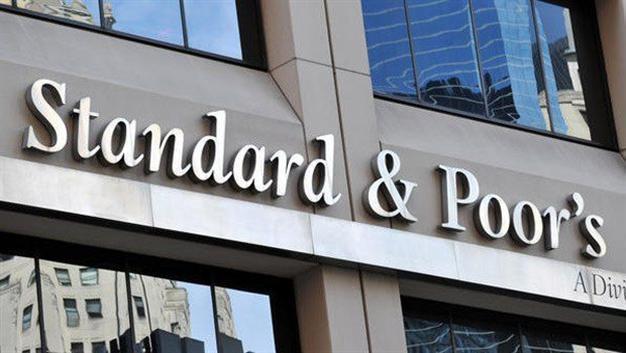Minimum wage rise could boost economy, S&P says
ANKARA – Anadolu Agency

A minimum wage hike in Turkey could boost the Turkish economy, credit agency Standard & Poor’s (S&P) said on Nov. 9.
“Increasing the minimum wage could boost domestic demand, increasing household income, and so it would have an effect on tax revenues,” S&P credit analyst Aarti Sakhuja said in an interview with Anadolu Agency.
The Justice and Development Party (AKP), which won enough seats in the Turkish parliament to form a single-party government, promised prior to the Nov.1 election to hike the minimum wage to 1,300 Turkish Liras ($446) per month from the current minimum wage of 1,000 ($343).
Currently, around 5 million people in Turkey are minimum wage workers, while businesses that sign collective bargaining agreements establish “base wage” negotiations according to the level of the minimum wage.
According to Sakhuja, the new government will have the chance to enact further structural reforms, which have been previously outlined in the past and which specifically address increasing economic growth and reducing the current account balance.
“If you look at the prospective reforms, for example, increasing the minimum wage, incentivizing household savings and reforms related to the participation of women in labor market, these all have a supply side effect, thus increasing Turkish economic growth. And, at the same time, such reforms can move the economy away from the dependence on external financing to more organic financing, generating income. If these are indeed implemented, we would see this as a credit positive,” Sakhuja said.
S&P forecasted the country’s GDP will grow just under 3 percent and that government debt will hold around 30 percent of GDP between 2015 and 2018.
Commenting on the country’s election results, Sakhuja said: “The fact that there is no need to form a coalition government, and that there will not be several months of negotiations to form a government as we saw in June, we maintain that short-term political uncertainty won’t be an economic factor, but, at the same time, some of the uncertainties we look at will still take some time to resolve.”
“There are still uncertainties,” she continued, “As in who will be appointed to key ministries, and what the policy stance is likely to be, how reform-oriented this government will be, and some other important factors such as whether the mandate of the Central Bank will be refocused from the current inflation target to a more growth-oriented focus.”
S&P forecasted that the U.S. Federal Reserve (Fed) would increase interest rates in December.
According to Sakhuja, the hike could potentially be of risk for Turkey.
She cited any interest rate hike by Fed cause an interest rate increase in Turkey.
“An increase in the interest rate means that interest rate differentials exist now between Turkey and Fed. If this differential comes down, this might cause foreign investors to rethink their positions to reduce their carry or not. This could lead to an interest rate hike in Turkey. If this happens, we question whether this would lead to slower growth.” Carry trades make use of the difference between low interest rates on one currency and high interest rates on another.
“The combination of tighter liquidity conditions and slower growth - not just through the channel of an increased interest rate, but also a reduction in the channel of inflows of capital from abroad that Turkey is dependent on - could lead to an outflow of funds from Turkey. Given Turkey’s reliance on external financing, given its relatively weak fundamentals in this respect, we think that, with Fed tightening, Turkey is one of the countries at risk with tightening global liquidity conditions,” Sakhuja explained.
Standard & Poor’s confirmed Turkey’s foreign currency rating at BB+ and the lira sovereign rating at BBB- on Oct. 6.
 A minimum wage hike in Turkey could boost the Turkish economy, credit agency Standard & Poor’s (S&P) said on Nov. 9.
A minimum wage hike in Turkey could boost the Turkish economy, credit agency Standard & Poor’s (S&P) said on Nov. 9.